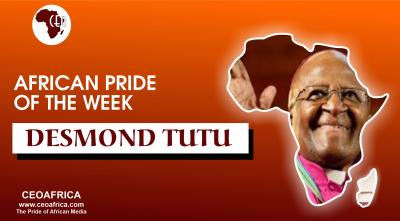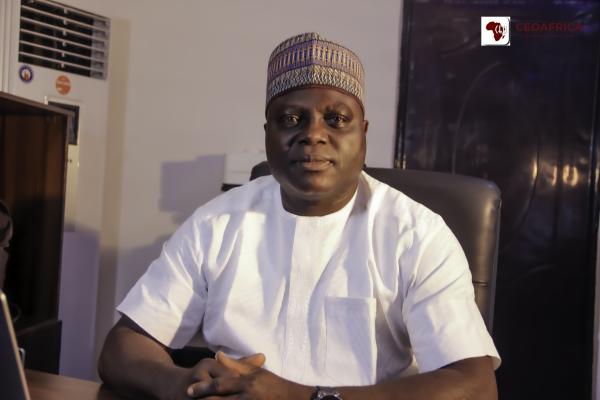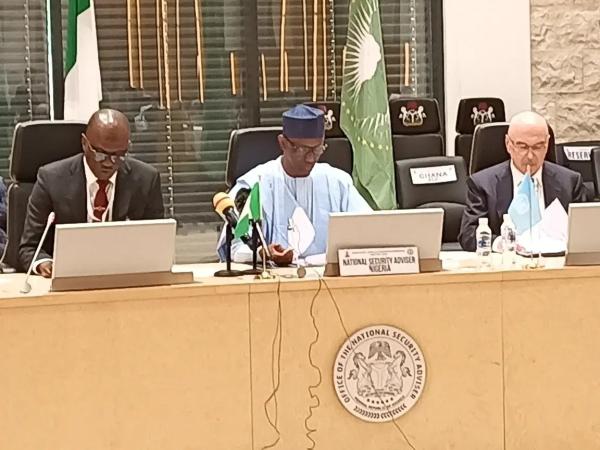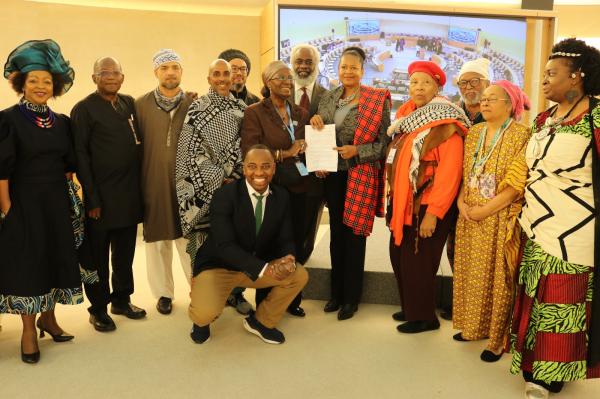
The rising of the sun is what gives birth to a new day. Darkness persists only as long as light refuses to shine. In the Southern Africa then, was a foremost light that shone even brightly, as the darkness of apartheid seemed to prevail. Desmond Tutu rose to international prominence when he gave himself wholly to the realization of the black civil rights and an end to the white minority rule in South Africa. Today, he is considered a living legend, and it is a great honour to still have him around.
Today, CEOAFRICA takes an exhaustive look at this great son of Africa, a towering personality that has contributed so much to the growth and development of the African continent.
Desmond Mpilo Tutu is a South African Anglican cleric and theologian. He was born on the 7th of October 1931. He came from humble background as his family was very poor. They lived in Klerksdorp, Union of South Africa. His parents were of mixed Xhosa and Motswana heritage. His name means “Conqueror”.
When Desmond became an adult, he fell in love with and married Nomalizo Leah Tutu, with whom he had several children. He was ordained as an Anglican Priest in 196o. Two years after, he went to the United Kingdom where he studied at Kings College London, majoring in theology.
When he returned to South Africa in 1966, he started work as a teacher at the Federal Theological Seminary. He later lectured at the University of Botswana. He also lectured in Lesotho and Swaziland.
He worked at the Theological Education Fund as Director for Africa. He held this position in London, but regularly toured Africa. The South African Council of Churches appointed him as the General-Secretary in 1978 and he served in that capacity till 1985.
Desmond Tutu is well known for his work as an anti-apartheid and human rights activist. He was one of the most prominent opponents of apartheid and white minority rule in South Africa. Though he strongly opposed the National Party government, yet he made it very clear that racial violence was imminent if anger for apartheid was not contained accordingly.
He personally preached a theory of nonviolence through peaceful protests. He also believed that foreign economic pressure can bring about a universal suffrage.
He became the Bishop of Johannesburg from 1985 to 1986 and then the Archbishop of Cape Town from 1986 to 1996. He was the first black African to hold either of the positions.
The Archbishop of Cape Town is the most senior position in Southern Africa’s Anglican hierarchy. While he served in this position, he stressed a consensus building model of leadership and oversaw the introduction of women priests. Still in 1986, he became the president of the All Africa Conference of Churches, resulting to further tours of the continent.
The fight against racism had created rival black groups as different interests were often clashing. This was to be expected as there were some groups who agitated for violent approaches to end the white minority rule. There were also, other groups which Desmond Tutu himself belonged to that believed that the best approach to the struggle should be non-violence.
Hence, when Nelson Mandela, another diehard activist who had been imprisoned for a long time, was released from prison by President F. W. de Klerk in 1990, Tutu paired up with him to negotiate an end to the disagreements against the various factions that had come up. They both acted as mediators.
To the delight of the black South African Populace, their struggle culminated in the coalition government that resulted in the 1994 general election. With Mandela as head of Government, he chose Desmond Tutu to lead the Truth and Reconciliation Commission set up to look into human rights abuses committed in the past by both pro and anti-apartheid groups.
Since the fall of apartheid, Tutu has campaigned for gay rights and spoken out on a wide range of subjects, among which are; the Israel-Palestine conflict, his opposition to the Iraq War, and his criticism of South African presidents Thabo Mbeki and Jacob Zuma. In 2010, he retired from public life.
He has had comparisons from the U.S. to the likes of Martin Luther King Jnr. The African-American civil rights activist, Jesse Jackson once referred to him as "the Martin Luther King of South Africa; though this comparison did not sit well with Tutu. He was embarrassed by it. His advocacy for gay and lesbian rights made him one of the few religious leaders to do so.
Desmond Tutu was loved, almost as equally as he was hated. And it is not hard to see why. His advocacy for the end of white minority rule obviously put him at loggerheads with the white Supremacists who wanted to retain power at all costs. Some of his black compatriots felt he was too gentle in his approaches, and some even believed he wanted to be in the good books of the whites while still fighting against them. He was not a communist understandably, but this stood him up with Marxist–Leninists.
Desmond Tutu holds many international awards and honorary degrees, particularly in South Africa, the United Kingdom, and United States of America.
By 2003, he had approximately 100 honorary degrees. He was the first person to be awarded an honorary doctorate by the Ruhr University of West Germany, and the third person whom Columbia University in the U.S. agreed to award an honorary doctorate off-campus. Many schools and scholarships were named after him. For instance, in 2000 the Munsieville Library in Klerksdorp was renamed the Desmond Tutu Library. At Fort Hare University, the Desmond Tutu School of Theology was launched in 2002.
On 16 October 1984, the then Bishop Tutu was awarded the Nobel Peace Prize. The Nobel Committee cited his "role as a unifying leader figure in the campaign to resolve the problem of apartheid in South Africa". This was seen as a gesture of support for him and The South African Council of Churches which he led at that time. In 1987 Tutu was awarded the Pacem in Terris Award. It was named after a 1963 encyclical letter by Pope John XXIII that calls upon all people of good will to secure peace among all nations.
In 2003, Tutu received the Golden Plate Award of the American Academy of Achievement presented by Awards Council member Coretta Scott King. In 2008, Governor Rod Blagojevich of Illinois proclaimed 13 May 'Desmond Tutu Day'.
In 2015, Queen Elizabeth II was graciously pleased to approve Desmond Tutu the honorary British award of The Order of the Companions of Honour (CH).Queen Elizabeth II appointed Tutu as a Bailiff Grand Cross of the Venerable Order of St. John in September 2017.
In 2010 Desmond Tutu delivered the Bynum Tudor Lecture at the University of Oxford and became Visiting Fellow at Kellogg College, Oxford. In 2013 he received the £1.1m ($1.6m) Templeton Prize for "his life-long work in advancing spiritual principles such as love and forgiveness". In 2018 the fossil of a Devonian tetra pod was found in Grahams town by Rob Gess of the Albany Museum; this tetra pod was named Tutusius umlambo in Tutu's honour.
Desmond Tutu accepted an honorary membership into the Golden Key International Honour Society, along with other notables such as Bill Clinton, Bill Ford, and Elie Wiesel. Golden Key International Honour Society is the world’s largest international collegiate honor society for graduate and undergraduate students, and has strong relationships with over 400 universities around the world.





















